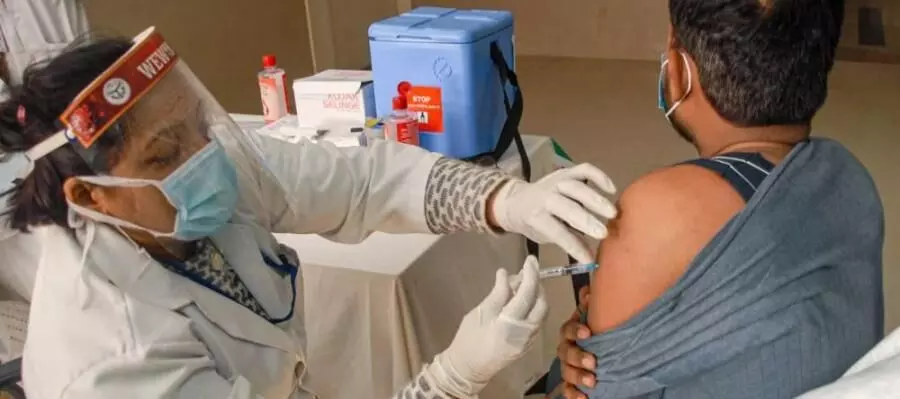
Delaying the second dose of COVID-19 vaccine boosts immunity: Studies
text_fieldsA medic administers the dose of COVID-19 vaccine on a beneficiary
As countries extend the interval between the two doses of the covid vaccine due to vaccine shortage, studies have revealed that delaying the second dose boosts immunity by allowing the immune system more time to respond to the first dose, reports Bloomberg.
The first shot primes the immune system and allows it to start making antibodies which when allowed to mature betters the reaction to the second booster shot, the research suggests. It is seen across different vaccines that 20-300% more antibodies are produced with a later second dose. While some studies conclude that delaying the second shot for 9-15 weeks averted hospital, another study from Canada suggests that the best benefit comes from a six-month delay.
"If I could, I would push a button that says right now, this second, we give one dose to everybody we can reach," said Gregory Poland, virologist and director of the Mayo Clinic's Vaccine Research Group. "We'll get around to second doses later."
"In the midst of a world on fire, you put out as many fires as you can, as quickly as you can," Poland added.
As no evidence was available on lengthening dose interval at the onset of the vaccine rollout, most countries limited vaccines to higher risk people and guaranteed a second dose for the segments. The UK was the first to drop this precedent.
Though extending intervals gives countries longer time to protect their population, people aren't considered wholly immunized until they receive both doses. The interval is also dangerous if resistant variants are spreading or if the first dose is weak.
Speaking of the logistic difficulties of extending the interval Gigi Gronvall, a senior scholar at the Center for Health Security at the Johns Hopkins Bloomberg School of Public Health, said, "When you have any kind of a two-dose schedule, it's hard logistically. You worry about when people will come back for a second shot or if you will lose them entirely."
While studies suggest that the optimal interval between two AstraZeneca shots is 12 weeks, India suggests 3-4 months.

















